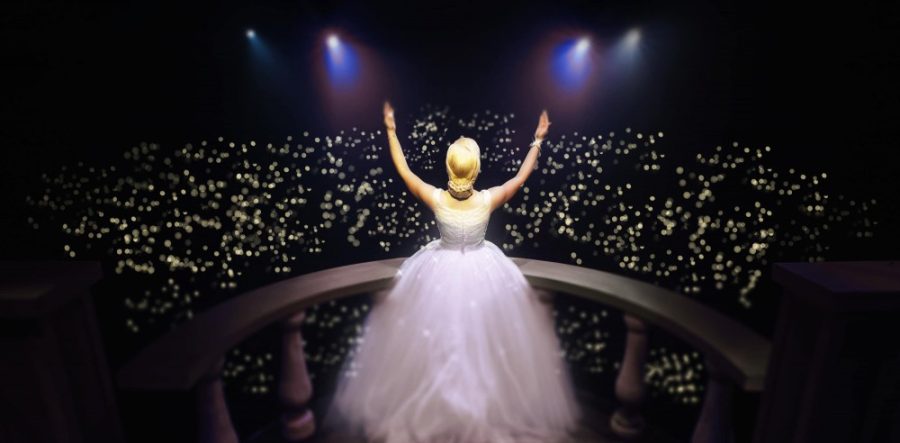Arizona Repertory Theatre’s production of “Evita” will have its opening night on Wednesday, April 12, marking the first time this semester that the theatre will perform a musical.
“Evita” tells the story of the former First Lady of Argentina Eva Perón.
“It’s a mixture of things because there’s a lot going on,” said Lisa Pierce, director of marketing and development at the Arizona Repertory Theatre. “It’s political, it’s romantic, it’s powerful.”
As the production is a musical and not a traditional play, the music involved will inherently be key in driving the plot forward.
“It’s just another way to move along the story and create emotion and set the tone and make the audience feel,” Pierce said.
The musical promises to have a completely different feel from the other productions previously performed at the theatre this semester.
“In musical theatre you are not just thought to sing; here, you are thought to act while you are singing,” Pierce said.
RELATED:Arizona Repertory Theatre aims to attract newcomers to shows
Christie Kerr, assistant professor of musical theatre, said the movements and dance of the actors have been some of the more challenging aspects of the production but are something that she enjoys.
“There have been many many rehearsals where we’ll say, ‘okay do it again, do it again,’ just to help get it into their bodies so they’re used to moving and singing and performing all at the same time,” she said.
For Kerr, the relationship between the choreography and the tone of the music is key to ensuring the performance on stage matches the mood of the musical’s plot. Kerr said the show uses dance and movement as a storytelling device.
Kerr crafts her ideas of what the movements in the production will look like through listening and studying the music.
“I listen to the music a lot and a lot of the time the music will dictate to me what it [the choreography] should be,” she said.
Danny Gurwin, director of “Evita,” underscored the tone of the play as being one set in the past that ultimately gives the production a unique feel.
“It’s a very legit fully sung show, written by Andrew Lloyd Webber, so it has a classic, classical feel, but it has a rock edge to it,” he said.
Gurwin said it is his job to expose the student actors to as much music and as many different styles as possible. As far as “Evita” is concerned, Gurwin said one of his tasks is to give context to the play by teaching the performers about the time period and location in which the true events that inspired “Evita” took place.

“They are really inhabiting these larger-than-life characters on stage but who are actually still real people,” he said.
The key then, for Gurwin, is to make sure the performers strike a balance between the reality of their characters and that which is created for dramatic effect.
“[Eva Perón] started from humble beginnings and then became a radio star, a movie star, and then married the eventual President of Argentina,” he said.
Gurwin said part of his job as director is to make the audience decide for themselves whether or not to admire Perón for her rise or to criticise her for the way she came about her success.
“The nice thing about the show is that it does leave it up to the audience at the end to decide what they think of her,” Gurwin said.
RELATED: Review: ‘Proof’ proves its worth
Perón’s rise in the play also reflects the fall of another character, with another woman in the story having a side storyline, Gurwin said.
Overall, Gurwin sees a musical like “Evita” as the practical application of classroom work on stage, highlighting the need for the actors to carry out a multitude of different skills.
“As actors in musical theatre you are the instrument unlike other disciplines,” he said. “You are an actor and you are a singer; it’s not like you can dust off your violin or clean out your trumpet, you have to be prepared to do the work.”
Pierce called “Evita” a powerful, iconic production.
“You are gonna go to that show and you are gonna feel,” Pierce said.
Follow Victor Herrera on Twitter.









